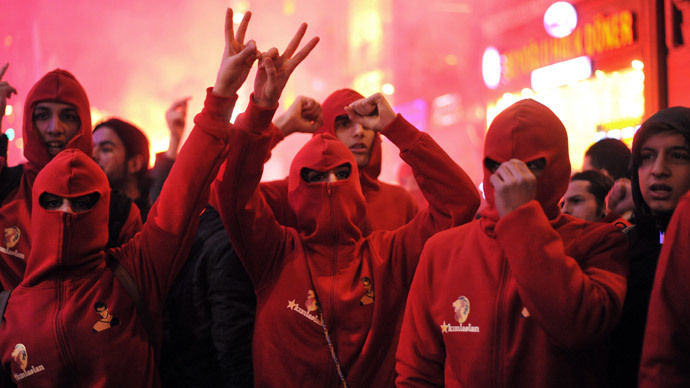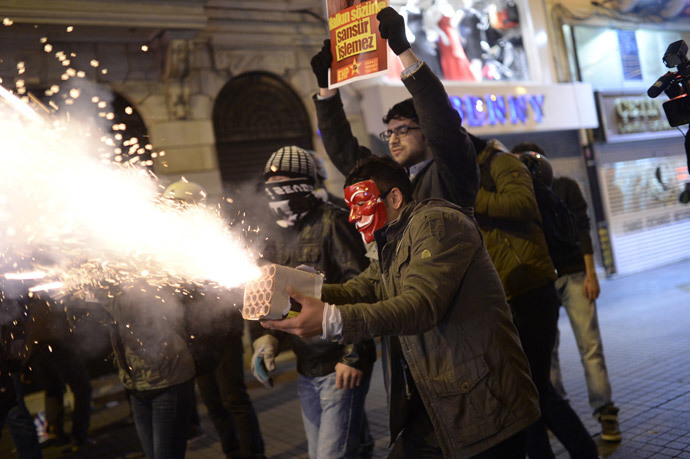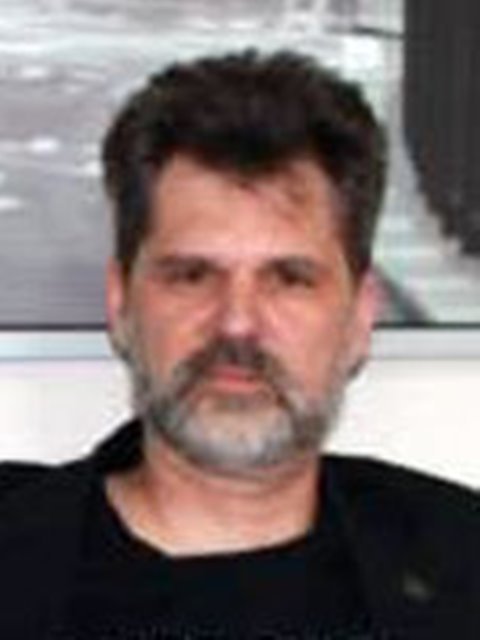Protests paranoia: Why Erdogan wants to perfect Turkey’s nanny state

Over the past years, internet freedom has been a contentious topic in Turkey. The popular video-sharing website YouTube has been banned for long swathes of time in recent years.
Those bans were upheld by the Turkish courts, based on videos insulting Mustafa Kemal Atatürk, the legendary founder of the Republic. At the time, Turkish media described the activity on the internet as a "virtual war" between Greek, Armenian and Turkish YouTube users.
Significantly, in June 2010, Turkey's president, Abdullah Gül, expressed his unhappiness in a Twitter message with the Turkish ban on YouTube, the third-most visited website in the world according to the monitoring website Alexa – an indication of the wide-reaching popularity of the internet in Turkey. In October 2010, Reuters reported that "Ankara's attorney general ruled the site [YouTube], blocked since May 2008, should be now freely accessible to Turkish users," adding that "[h]uman rights groups and media watchdog associations have long urged European Union membership candidate Turkey to reform its restrictive internet laws. In June, the human rights and security group Organization for Security and Cooperation in Europe (OSCE) said Turkey's internet law, first introduced to restrict access to pornography and other content harmful to children, had been expanded to prevent access to over 5,000 sites."
But, arguably, in view of last year's Gezi unrest and the role played by social media and internet-access-providing smartphones in organizing the protests and spreading the word around, Recep Tayyip Erdogan's government has now introduced new legislation intended to curb "virtual" or "cyber" excesses and the formation of political flash mobs, somewhat misusing the concept coined in 2003. This attempt, arguably aimed at managing Turkey's youth, comes in conjunction with other legislation curbing the country’s legal institutions in response to the corruption scandal that erupted on December 17, and that is popularly known as #AKPgate on social media.

In fact, Erdogan's government made 1,673 requests to remove material from the web in the first six months of last year, but Google turned down most of these requests. Yaman Akdeniz, a law professor at Istanbul’s Bilgi University and a self-professed "cyber-rights activist," commented that these actions "are politically motivated measures to curb the free flow of information on the internet even further in Turkey," specifically to thwart the "leaking of videos and WikiLeaks kind of documents."
In other words, there are those who see this new internet legislation as a clear form of government censorship, another attempt to stifle any opposition to the AKP-led government and to further smother freedom of expression in the country. Turkey is, after all, "the world’s leading jailer of journalists, followed closely by Iran and China," according to the Committee to Protect Journalists.
The internet bill was passed by Turkey's parliament Feb. 5 and is now awaiting ratification by President Gül. Some see Gül as a more moderate leader, acting as a kind of pacifying force on the Turkish political scene. Rumors are now circulating on the Turkish internet that the two friends and comrades-in-arms of yesteryear, Erdogan and Gül, have now become enemies-of-sorts and that the president is actually conspiring with Deputy Prime Minister Ali Babacan to set up a new party in opposition to Tayyip Erdogan's AKP. On the other hand, the two politicians could just be engaging in a game of Good Cop/Bad Cop tactics.
In the end, one cannot but see the prime minister as moving towards a conciliatory form of Islamic democracy in Turkey, a form of democracy that sees the state as providing for the physical and spiritual wellbeing of its citizens – a Muslim nanny state, as it were. In this context, it seems easy to interpret Turkey's recent alleged curbs on freedom of expression and the current internet legal bill as measures that would see the Turkish state as providing the citizenry under its care with "healthy choices" in the field of the internet-based society and economy – gently policing the internet in view of the fact that a "closed regime cannot survive given the power of new technologies," as tweeted by President Gül in March 2011.

Nevertheless, the Turkish nanny state controls what parts of these "new technologies," what parts of the internet in other words, are "healthy" for its citizens to consume, and as a result, "[i]nternet access in Turkey is already restricted and thousands of websites blocked," as registered by the BBC a few days ago.
Beyond the glare of the computer screen, the nanny state is well-established in the Turkish system, easily visiting hundreds of thousands of households every day through the offices of the ubiquitous television set. Turkey is probably the only place in the world where the state deprives its citizenry of the ability to openly view the consumption of cigarettes on its television screens – whether in old movies, current soap operas or beneficial documentaries, the Turkish censors digitally block the appearance of cigarettes on the small screen by means of electronic flowerlike imagery covering the offending the objects.
In the real world, a smoking ban in public places and exorbitant fines for offenders remind citizens that smoking is bad for you and that the Turkish state is at pains to increase the number of non-smokers in the nation. Last year, the government also enacted a law which placed restrictions on the sale of alcoholic beverages. In the same way, the Turkish authorities have also declared a war on tuberculosis, on obesity and on cancer. The tax burden on products containing such unhealthy ingredients as salt, sugar and fat has also been increased – appealing to the Turkish consumers' purse strings to cut back on ingesting harmful foodstuffs. This measure was enacted last year, and also included measures urging the Directorate of Religious Affairs to compose Friday Sermons stressing the benefits of a healthy diet and the dangers of the over-consumption of salt and sugar.
The most obvious manifestation of the Turkish nanny state has to be the national healthcare system, providing free care and medicine to each and every citizen. As a result, Erdogan interprets any legislation enacted by his government as beneficial to the Turkish people, and furthering the cause of public health and the public good, just like in an Islamic system where the state acts as a kind of avuncular intermediary between the people and their creator. Recently talking to Al-Jazeera, Erdogan told the journalist Jamal Elshayyal: "Turkey is much more free than almost all of the EU member countries," adding: "We [the AKP, or Justice and Development Party] are running a state. While we are running this state, we have to run it successfully."
Erdogan then explained that in the AKP's "party program there is a definition of secularism and we have defined and implemented it perfectly... our understanding of secularism is that the state stands in equal distance to all beliefs and is responsible to protect every belief, whether Muslim or Christian or atheist ... and this is exactly what our government does in Turkey ... We love that which is created because of its Creator. Therefore, a Kurd is my brother, a Turk is also my brother, so is the Laz, the Circassian, the Georgian, the Abkhaz, the Bosnian, the Roma. They are all my brothers. This is because Allah created us like this. We can never discriminate amongst us."
In this way, Erdogan appears to suggest that the Turkish nanny state under his guidance will continue working for the benefit of all citizens, restricting internet access, if need be, and guaranteeing that only "healthy choices" are on offer, “in accordance with the will of the Creator.”
The statements, views and opinions expressed in this column are solely those of the author and do not necessarily represent those of RT.
The statements, views and opinions expressed in this column are solely those of the author and do not necessarily represent those of RT.













